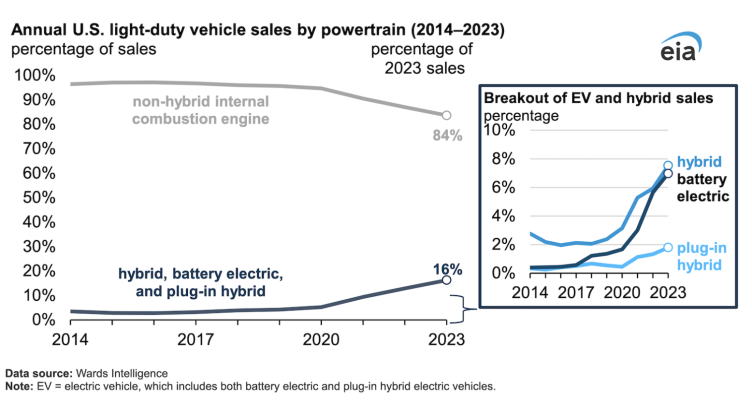Much of the discussion has been of long distance driving ... going to my #3, I contend, again, this is about those vehicles/users who drive locally ... most, right? This summary says 69% in urban areas (
https://css.umich.edu/publications/factsheets/mobility/personal-transportation-factsheet) ... guessing maybe 5-10% is in excess of 300 mile trips? What are your metrics? Mine would be a long trip (in excess of 400 miles) maybe 2-3 times per year?
So, an overwhelming percentage (even considering the number charging at work, or shopping, etc) will be charging at home ... add in ability to use the EVs as backup house power (instead of home generators), or even to balance out usage with solar panel systems? Sound like a reasonably positive interrelationship.
Then, going to 1 and 2 ... and the timeline for everything ... my personal impression is EV support is changing far faster than most recognize ... just think how long it took for fuel stations to pop up everywhere ... and, range is improving, slowly, perhaps, but it is.
"1. Range has improved significantly in the last five years
2. The number of chargers has improved significantly in the last five years
3. EVs are, in spite of 1 and 2, above, still more often used for shorter haul stuff.
4. If a family has two cars - one of them is likely to be more aligned with the longer haul need - perhaps a hybrid.
5. If a family has one car, and they like to long distance road travel, they will likely have a hybrid.
6. Each of the above has a series of curves that fit into various models
7. It's government's job to assess and motivate for the common good"

